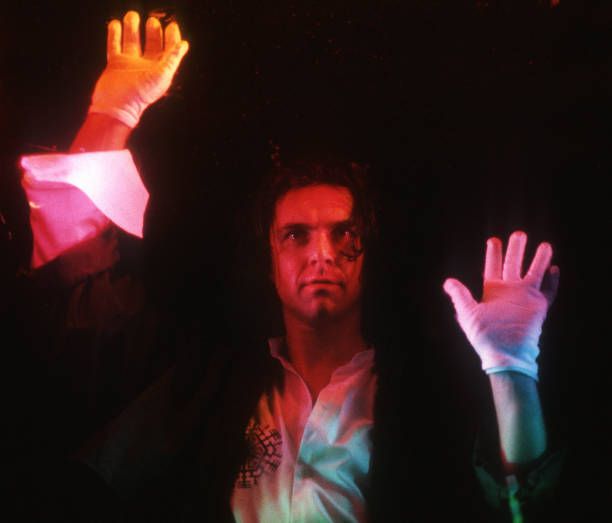I remember the moment I found out that Marillion had lost their singer, Fish, very well. It was, I think, the spring of 1988 and the sad news came in a letter – the handwritten type sent via the U.S. Post Office – from a woman with whom I traded bootlegs. The teenage me was in shock, at first, as I read the words while seated at the kitchen table. Shock then led to me feeling devastated. How would I get my fix of prolix, poetic lyrics about personal struggles and the achingly beautiful guitar solos that brought them to life musically? What would happen to the band? Was it really the end?
Not by a long shot.
Marillion smartly brought in a new singer who was much shorter than Fish, had a completely different voice than the Scotsman, and wrote very different lyrics. I didn’t envy Steve Hogarth having to fill Fish’s shoes but history has proven he was more than capable of being the band’s front man.
I recall well buying the first album of this new incarnation of Marillion, Seasons End, in the fall of 1989. Although the cover featured the old logo, it did not sport the very colorful imagery of Mark Wilkinson who had painted the artwork for the band’s previous album covers which were dense tableaus of Fish's lyrical world. Instead it was more spartan, featuring a series of small photographs that represented the four elements set on a larger backdrop of ocean waves. Each of the smaller pictures had a reference to the band’s previous era with Fish.
The one representing earth has a feather which may be a magpie feather; in the air panel we see the tip of a jester cap not unlike the one seen on the Clutching at Straws cover; a chameleon sits on a branch while in the background a fire roars; and lastly the picture of a clown seen on the Fugazi album cover is seen sinking into a pond or lake.
I couldn’t wait to get home and listen to it.
I suspect the band decided to play a trick on fans with the lead-off song, “The King of Sunset Town”. Here we all were, eager to hear the new singer in action. We hit play or drop the needle and are forced to wait two and half minutes before Hogarth sings a note. But a glorious two and a half minutes they are.
Mark Kelly conjures a wash of synths that slowly builds. He adorns the swirling mix of string-like and chorus sounds with some other bits that, along with Steve Rothery’s guitar, add mood to the gently churning aural wave. Pete Trawavas’ bass eventually joins and some subtle cymbals from Ian Mosely are thrown in for good measure. Then a glassy whoosh of those cymbals ushers in the drums which skip along as Rothery gives us a gorgeous solo full of his trademark sustained notes. I love this solo’s cadence which starts with high notes and then descends. Then it’s back to the higher ones and down low once more.
Things slow down with a few plucked guitar notes and a wandering bass providing the backdrop for Hogarth’s entry. He has a kindler, gentler voice than Fish. “The King of Sunset Town” is about the poor and the rich, the powerful and the weak, filtered through the lens of the events of the Tiananmen Square protests of that summer. Had Fish tackled this topic, he surely would have made the lyrics a screed angrily denouncing the Chinese authorities and bitterly lamenting the deaths of those killed by the army.
But Hogarth (and lyrical co-writer John Helmer) write a broader, more humanistic tale. One that perhaps focuses less on the violence and deaths, and more on the power of that nameless man who stood in front of a line of tanks causing them to halt. Hogarth’s voice is no less powerful or emotive than Fish’s, but he tacks the seas of human experience via a different course than his predecessor.
The music sounds fresh and dynamic here and on the rest of Seasons End. Instead of another round of plumbing the depths of despair and marshaling anger, Marillion seek out the good in the world, however well-hidden, and tease out hope even if the situation seems hopeless. The balance between opening one’s heart and venting one’s spleen tips decisively towards the former.

No comments:
Post a Comment